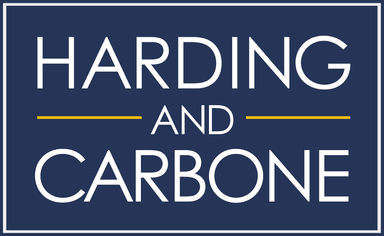
Property Tax Advice For Montgomery County Homeowners
September 13, 2025
Key Takeaways:
- Assessment Basics: Property taxes are based on your home’s appraised value, which can be influenced by market trends, size, and improvements.
- Deadlines Matter: Missing key tax dates can mean losing exemptions or facing penalties that quickly increase your balance.
- Relief Options: Exemptions and protests give homeowners practical ways to reduce taxable value and manage annual costs.
For more than four decades, Harding & Carbone has been a trusted leader in Texas property tax consulting, representing homeowners and businesses across the state with unmatched experience. With thousands of successful protests and long-standing relationships with appraisal districts, we have built a reputation as one of the most established and respected firms in the industry.
Property taxes in Montgomery County have become an increasing concern for homeowners as rising market values continue to push appraisals higher each year. Understanding how these taxes are assessed, and where opportunities for relief may exist, can make a significant difference in protecting your financial stability. From exemptions and deductions to protests and deadlines, property tax management requires both knowledge and strategy.
In this piece, we will be discussing how Montgomery County property taxes work, the key deadlines you should know, the way taxes are calculated, and practical steps you can take to reduce your annual bill.
Understanding Your Montgomery County Property Tax
Property taxes in Montgomery County play a critical role in funding essential services such as schools, public safety, and infrastructure. For homeowners, understanding how these taxes are assessed is the first step toward managing them effectively. Each year, the Montgomery Central Appraisal District determines the value of your property. That figure, multiplied by the applicable tax rates, becomes the basis of your annual property tax bill.
The appraised value reflects what the county believes your home is worth on the open market. This value can be influenced by nearby home sales, property improvements, and general market trends. Homeowners should carefully review their annual appraisal notice to confirm accuracy. Small discrepancies in square footage, number of rooms, or property classification can lead to higher-than-necessary tax bills.
It’s also important to distinguish between market value and taxable value. Market value is the appraiser’s estimate of your property’s worth, while taxable value is the amount after exemptions are applied. Knowing the difference helps homeowners see where opportunities for tax relief may exist.
By becoming familiar with how Montgomery County establishes property values, homeowners can better monitor their assessments and take proactive steps if adjustments are needed.
From residential protests to large-scale commercial property assessments, our team provides a full range of solutions to reduce your tax burden. Explore our services page to see how we can support your unique needs.

Key Dates And Deadlines For Property Taxes In Montgomery County
Staying aware of important property tax dates in Montgomery County can prevent missed opportunities and unnecessary penalties. Each stage of the tax calendar has a direct impact on your potential savings and overall financial planning.
- January 1 – The start of the tax year. Property values are assessed based on ownership and condition as of this date. If there are errors in your property records, they will influence the appraisal.
- April 15 – Deadline to file for a homestead exemption and other applicable exemptions. Submitting the correct paperwork by this date can reduce your taxable value.
- May 15 – Final day to file a protest if you believe your property has been overvalued. Preparing early with supporting evidence, such as comparable sales data, gives you a stronger case.
- October – Property tax bills are typically mailed to homeowners around this time. Review your statement carefully and confirm that all exemptions have been applied.
- January 31 (following year) – The deadline to pay property taxes without penalty. Payments made after this date accrue interest and penalties, which increase over time.
By marking these deadlines on your calendar and preparing in advance, you’ll have a clear path to managing your property tax responsibilities more effectively.
How Property Taxes Are Calculated In Montgomery County
Understanding how your property taxes are calculated helps you anticipate your annual bill and identify opportunities for adjustments. The process begins with the appraised value of your home, which is determined each year by the Montgomery Central Appraisal District. This value is influenced by several factors:
- Market trends: Rising home sales in your neighborhood can increase your appraisal, even if you haven’t made improvements to your property.
- Property characteristics: Square footage, lot size, and layout all contribute to your assessed value. Two homes with the same floor plan may be appraised differently if one sits on a larger lot.
- Improvements: Renovations such as an updated kitchen, an added room, or a new pool may raise the value of your property.
Once the appraised value is set, exemptions you qualify for, such as a homestead exemption, are subtracted to determine the taxable value. This figure is then multiplied by the tax rates of the various entities that collect revenue from your property. These include:
- Montgomery County for county-wide services like law enforcement and road maintenance.
- School districts for education funding, which often make up the largest portion of your tax bill.
- Cities or municipalities for local government services if your property is within city limits.
- Special districts such as emergency service districts or flood control authorities, which may levy additional rates.
Because multiple taxing entities are involved, property tax rates can vary depending on where you live in Montgomery County. Monitoring both your appraisal and the rates applied helps you understand how your final tax obligation is determined.
Exemptions And Deductions Available For Montgomery County Homeowners
Property tax exemptions are one of the most effective ways to reduce your annual bill in Montgomery County. These programs lower the taxable value of your property, which directly decreases the amount you owe.
Homestead Exemption
The homestead exemption is the most common form of relief available to homeowners. It applies to your primary residence and reduces a portion of your property’s taxable value. To qualify, you must own and occupy the home as of January 1 of the tax year.
Over-65 And Disabled Person Exemptions
Homeowners who are 65 years or older, or who have a qualifying disability, can receive additional exemptions. These provide extra financial relief and, in some cases, may also cap how much your taxable value can increase each year.
Agricultural And Wildlife Exemptions
Properties used for farming, ranching, or wildlife management may be eligible for special exemptions. These reduce taxes by valuing the property based on its agricultural use rather than its market potential for development.
Tips To Lower Your Property Tax Bill In Montgomery County
Reducing your property tax bill often comes down to being proactive. By taking a few practical steps, homeowners in Montgomery County can limit overcharges and avoid paying more than necessary.
Verify Property Records
Start by reviewing your appraisal notice and confirming that the county has accurate information about your home. Errors in square footage, lot size, or the number of improvements can lead to inflated valuations.
Ready to take control of your property taxes in Montgomery County? Reach out today through our contact page and connect with a tax professional who can guide you through the process.
Apply For Exemptions
Make sure you take advantage of every exemption you qualify for, from the homestead exemption to age-based or disability exemptions. Even small reductions in taxable value can lead to meaningful long-term savings.
Research Comparable Properties
Look at how similar homes in your neighborhood are valued. If your appraisal seems disproportionately high compared to nearby properties, this evidence can strengthen a protest.
Consider Professional Assistance
While homeowners can file protests on their own, many turn to property tax consultants for support. Experienced professionals can prepare evidence, represent you at hearings, and guide you through the process, often leading to more favorable outcomes.

Final Thoughts
Property taxes in Montgomery County can feel complicated, but understanding the basics gives homeowners more control over the process. From knowing how your home is appraised to keeping track of key deadlines and applying for exemptions, each step can make a meaningful difference in what you pay.
As property values rise across the region, staying engaged with your tax responsibilities is more important than ever. Reviewing your appraisal, challenging inaccuracies, and exploring available exemptions are all ways to protect your finances.
Harding & Carbone has been working with Texas property owners for decades, helping them navigate these challenges with clarity and precision. By taking the time to understand how the system works and seeking the right support when needed, Montgomery County homeowners can approach property taxes with greater confidence and peace of mind.
Frequently Asked Questions About Montgomery County Property Tax
What happens if I miss the January 31 property tax payment deadline?
Missing this deadline results in penalties and interest that begin accruing immediately. The longer the balance goes unpaid, the higher the costs become.
Can Montgomery County place a lien on my home for unpaid property taxes?
Yes. If property taxes remain unpaid, the county can file a lien against your home. This must be resolved before you can sell or refinance.
How often does Montgomery County reassess property values?
Appraisals typically occur once per year. Your property’s market conditions, neighborhood trends, and improvements are reviewed annually.
Does installing energy-efficient upgrades affect my property tax bill?
Yes. Upgrades like solar panels or energy-efficient additions may increase your home’s market value, which can raise your appraisal.
Are property taxes the same across all parts of Montgomery County?
No. Rates vary depending on your school district, city, and other local taxing entities. Two homes of equal value may have different tax bills.
Can I appeal my tax bill if I missed the protest deadline?
In most cases, no. Once the protest deadline has passed, appeals are limited to very specific circumstances such as clerical errors.
Do senior citizens in Montgomery County receive a property tax ceiling?
Yes. For homeowners 65 and older, certain taxing units may freeze the school portion of property taxes, preventing increases year to year.
Is there a payment plan option for property taxes in Montgomery County?
Yes. The Montgomery County Tax Office offers installment plans to spread payments over several months, helping reduce financial strain.
Can property tax exemptions transfer if I move within Montgomery County?
If you relocate to a new primary residence, you must reapply for exemptions like the homestead. They don’t automatically transfer.
Are property taxes in Montgomery County deductible on federal income taxes?
Yes, subject to IRS limits. The current cap under federal law allows up to $10,000 in combined state and local tax deductions.
